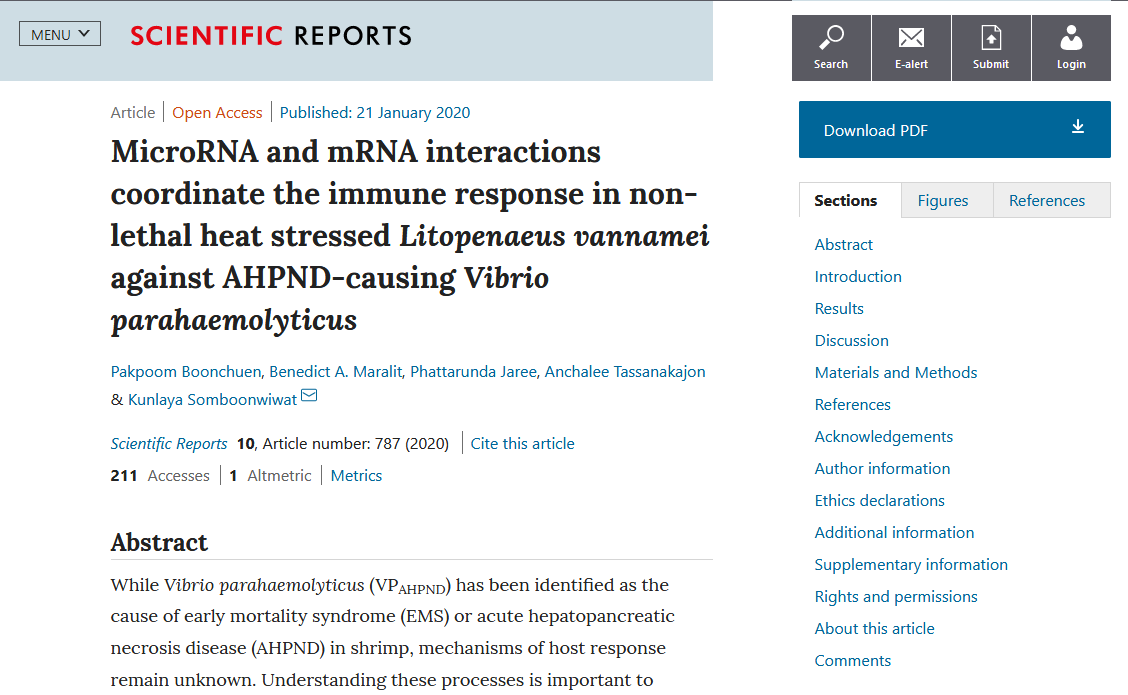During its first outbreak, the devastating effect of early mortality syndrome (EMS) on the global shrimp industry was primarily caused by the lack of information regarding the disease and its causative agent.
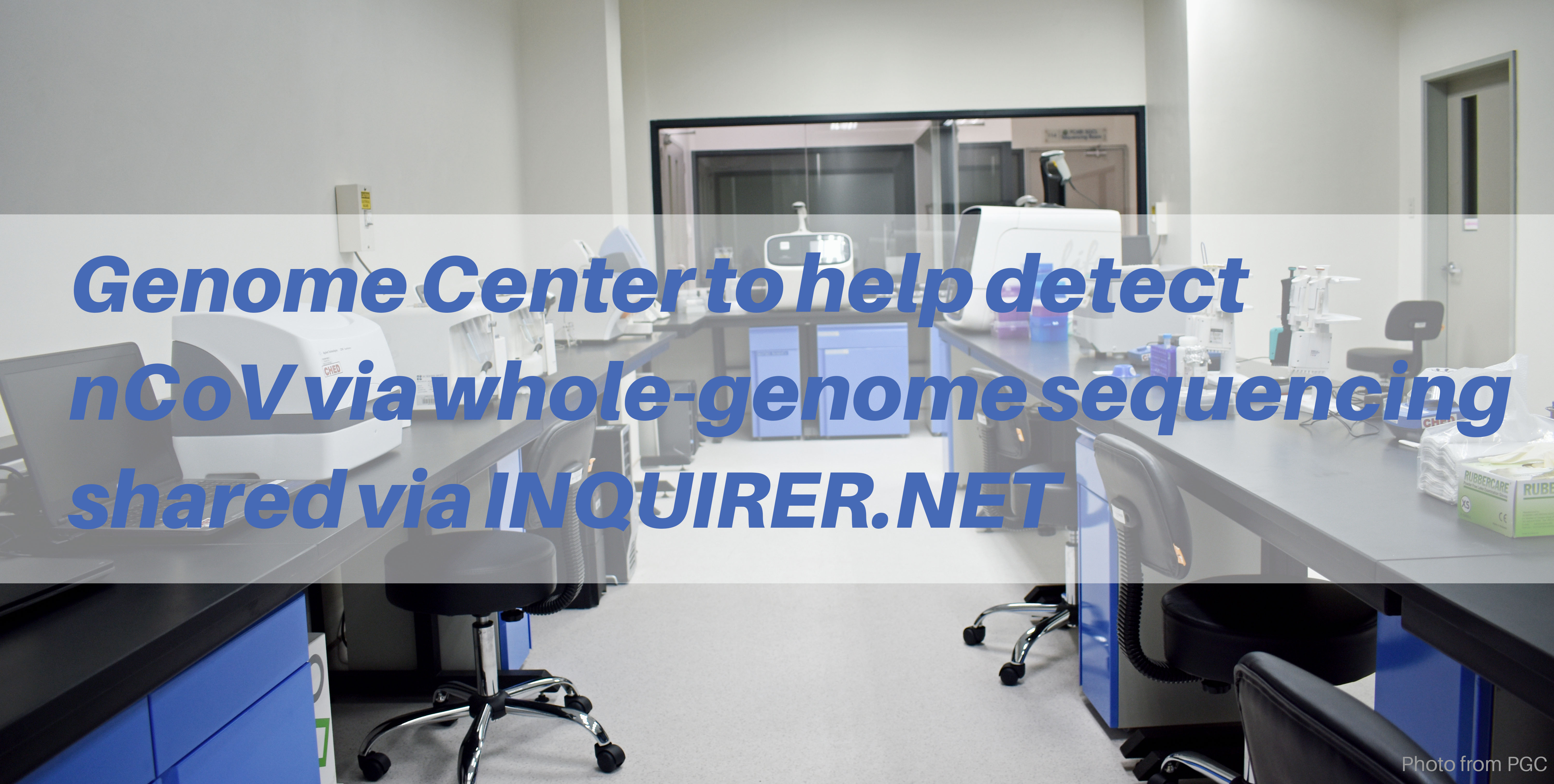
Genome Center to help detect nCoV via whole-genome sequencing
The Centers for Disease Control and Prevention (CDC) describes whole-genome sequencing as a “laboratory procedure that determines the order of bases in the genome of an organism in one process.”
According to CDC, scientists conduct data analysis, which is the fourth step of whole-genome sequencing, to compare “bacterial sequences and identify differences.”
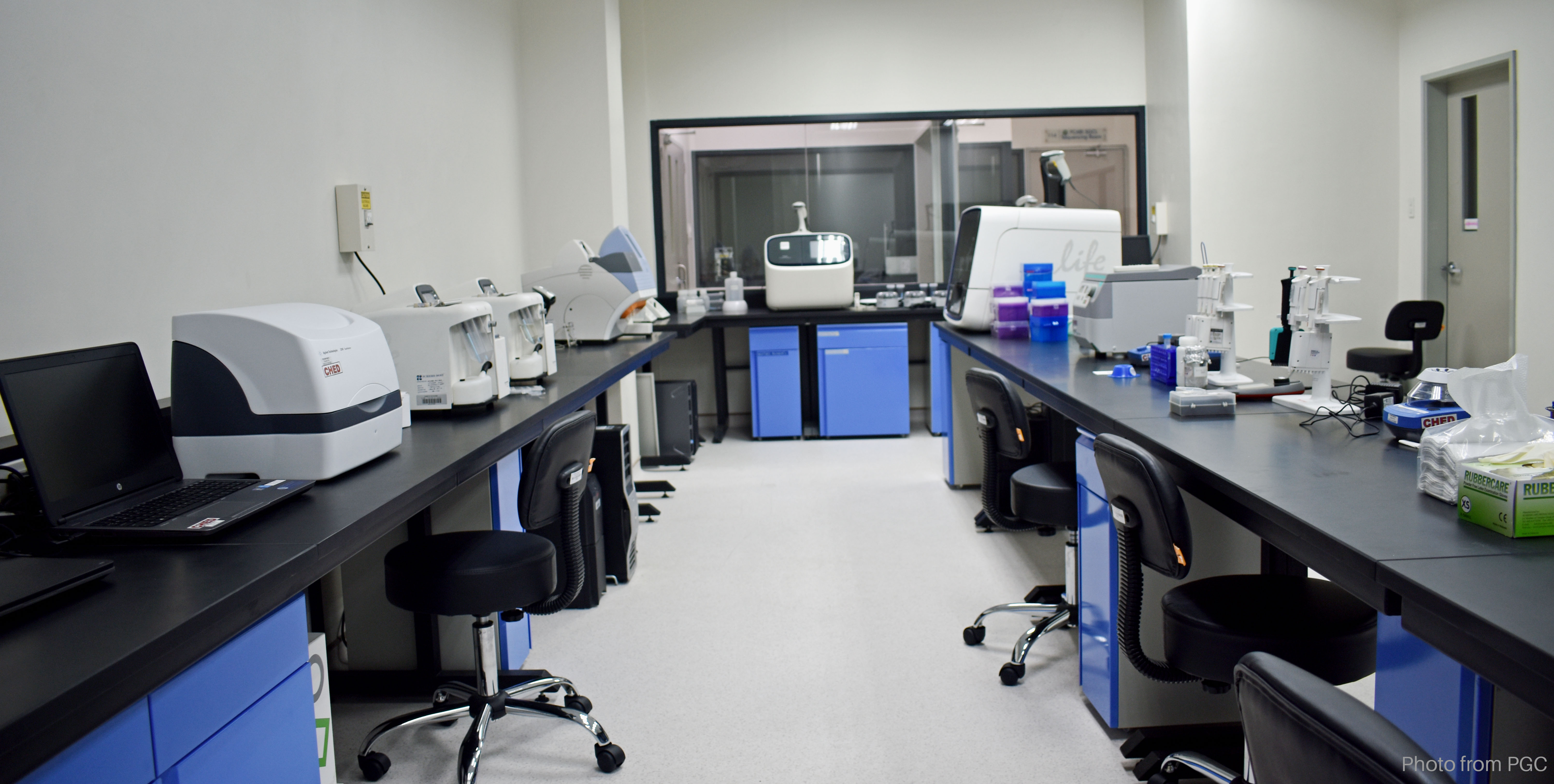
Philippine Genome Center gears up to verify presence of 2019-nCoV through whole genome sequencing
With the use of Next Generation DNA/RNA Sequencing equipment (NGS) available at the Philippine Genome Center (PGC) in the University of the Philippines Diliman Campus, the team of the DNA Sequencing Core Facility (DSCF) is ready and willing to assist RITM and the DOH in confirming suspected cases of 2019-Novel Coronavirus (2019-nCoV) in the country.
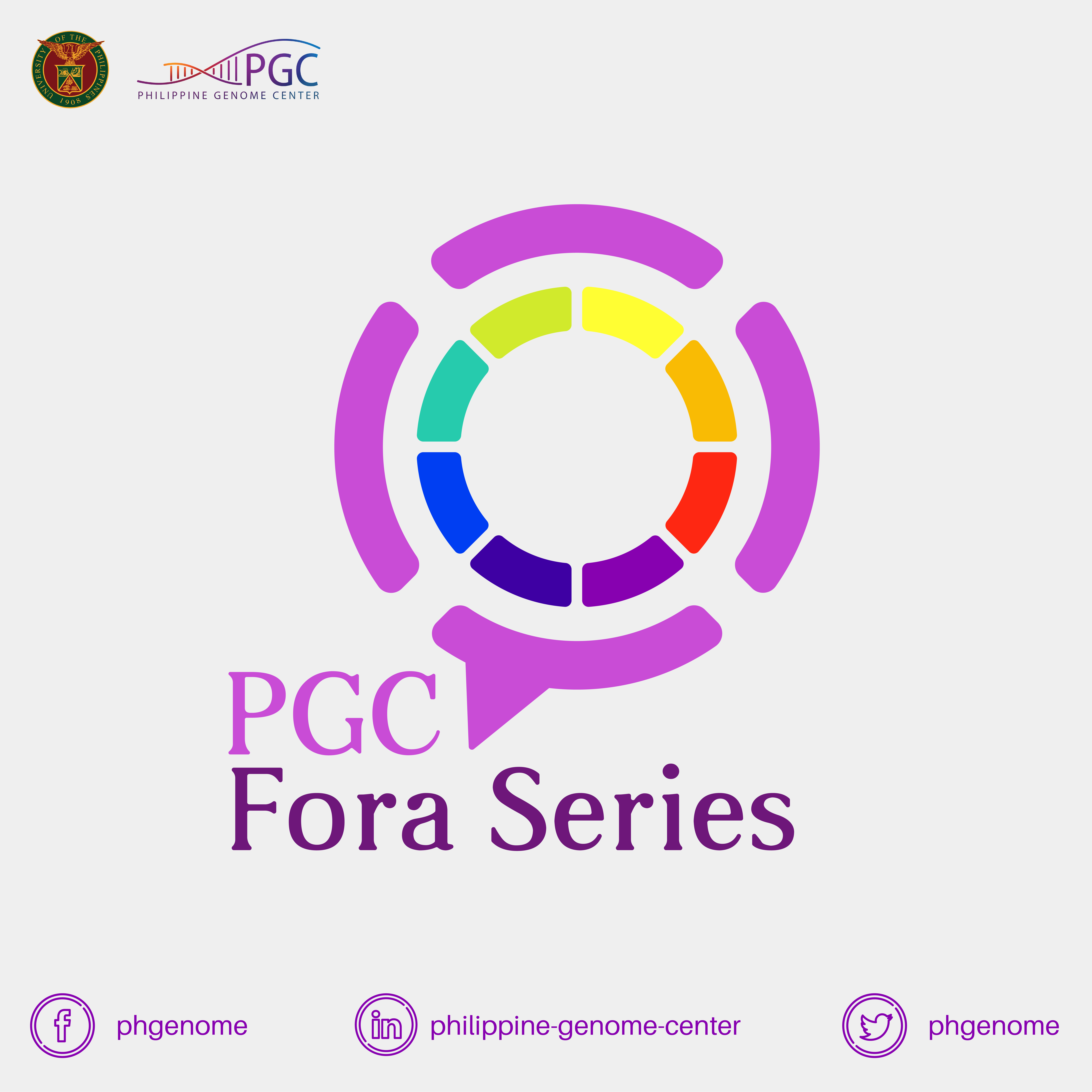
PGC Fora: The Story of the Filipinos Through the Genomics Lens
The forum will be held on January 31, 2020 from 08:30 am – 04:00 pm at the Institute of Biology Auditorium, National Science Complex, UP Diliman, Quezon City, 1101.
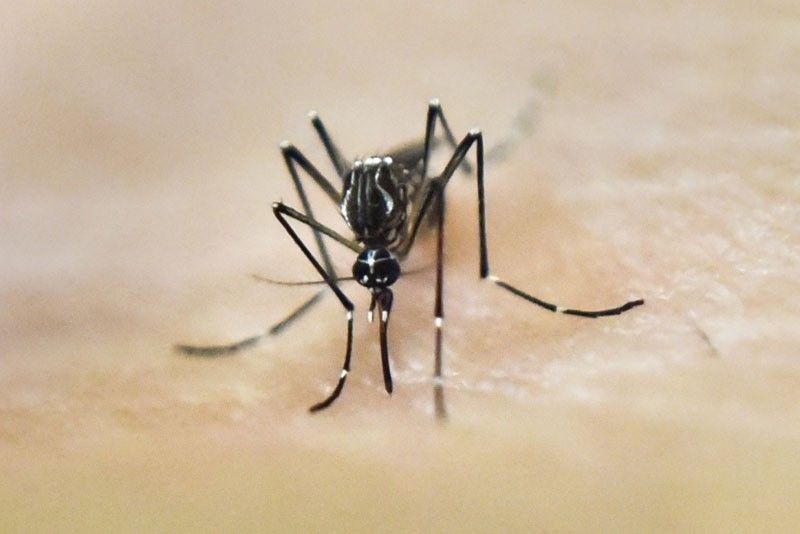
Local dengue test kit to be marketed internationally
Manila HealthTek is a spinoff company formed to pursue the commercialization of the dengue diagnostic technology developed by a team of UP Manila National Institutes of Health medical researchers led by Dr. Raul Destura.
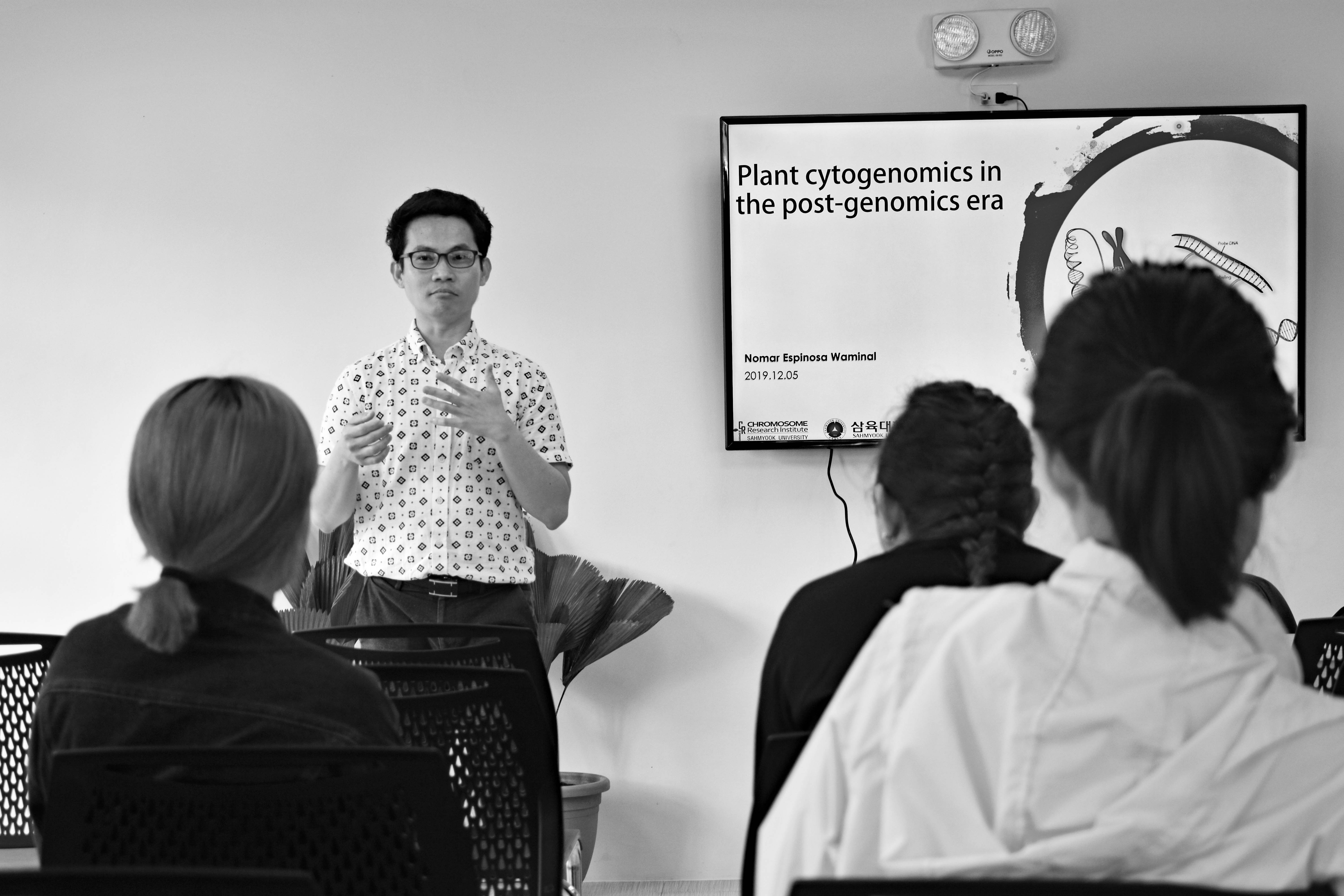
Cytogenetics in Plant Breeding: Conservation and Evolution in the Post-Genomics Era
This seminar features the PGC hosted Balik Scientist Dr. Nomar Waminal who will be presenting his talk on “Cytogenetics in Plant Breeding: Conservation and Evolution in the Post-Genomics Era”. Dr. Waminal is currently serving as a Research Professor under the Chromosome Research Institute at Sahmyook University, Seoul, Republic of Korea. He was a Samsung Global Scholar and received his Ph.D. in Crop Science and Biotechnology from Seoul National University.
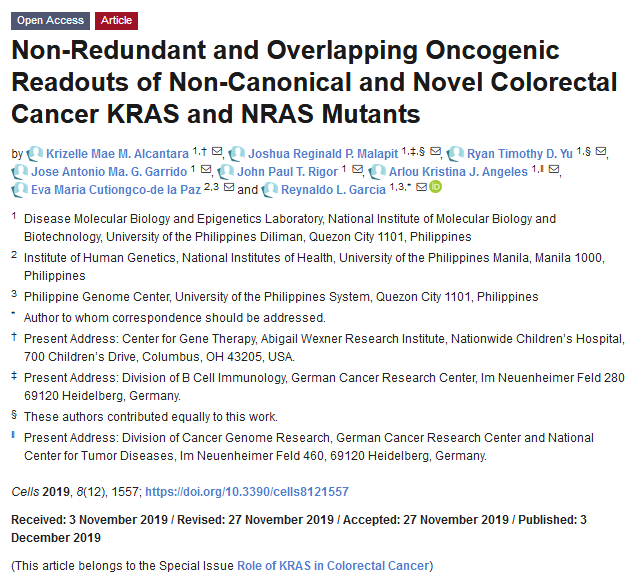
Non-Redundant and Overlapping Oncogenic Readouts of Non-Canonical and Novel Colorectal Cancer KRAS and NRAS Mutants
The efficacy of monoclonal antibodies targeting the epidermal growth factor receptor (EGFR) pathway for treatment of colorectal cancer (CRC) depends on predictive biomarkers that can identify likely responders or non-responders to therapy.
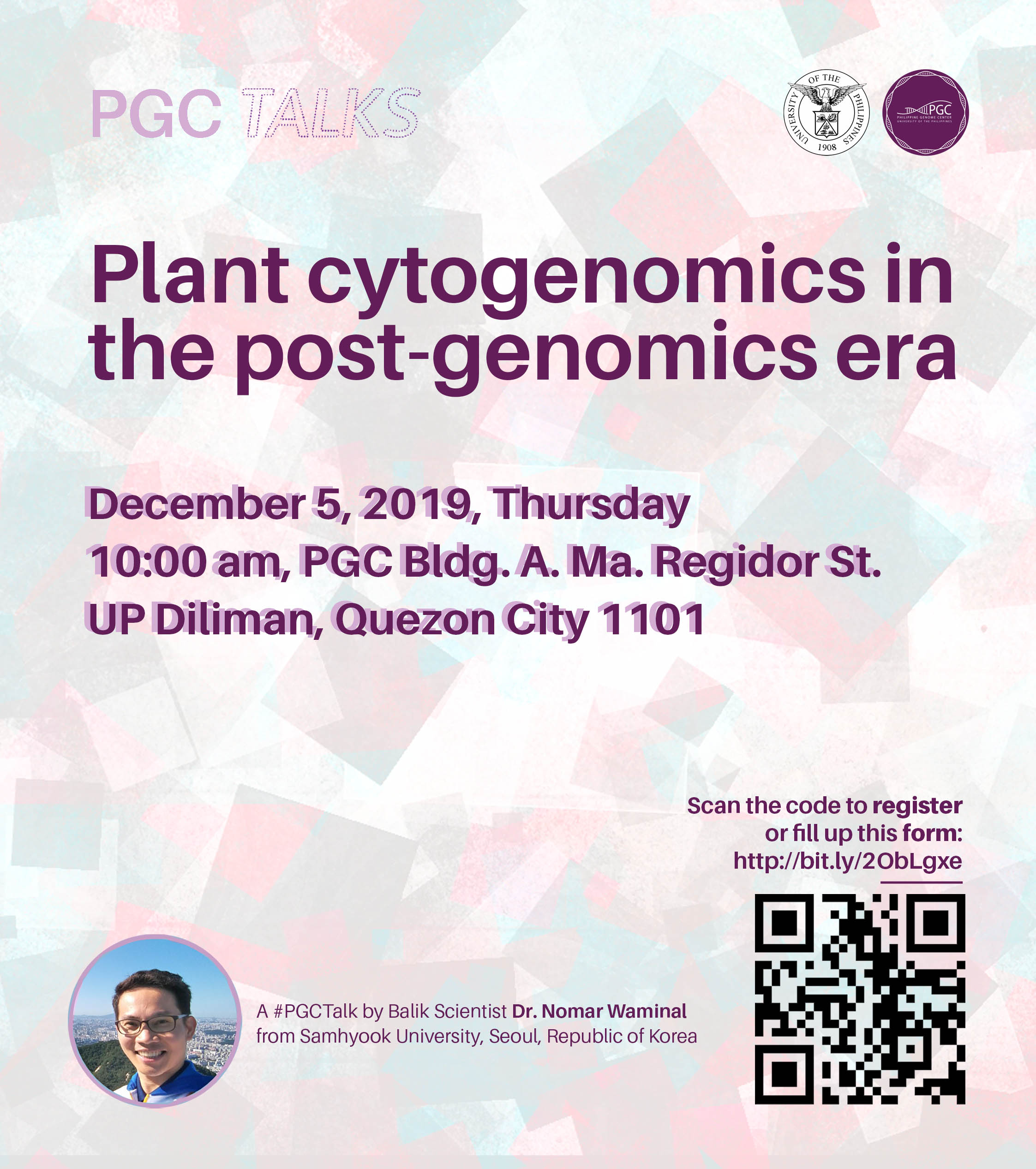
Plant cytogenomics in the post-genomics era
The release of the first human reference genome in 2003 marked the beginning of the post-genomics era when genetics progressed beyond gene-centered analyses to a myriad of omics approaches. Genome sequencing technologies have advanced dramatically from Sanger, second/next-generation, to third-generation sequencing platforms. Also, genome assembly methods and tools have evolved contemporaneously, resulting in a dramatic drop in genome assembly cost. Consequently, more than 360 plant species’ genomes have been assembled ever since the first plant genome, Arabidopsis thaliana, was published in 2000.
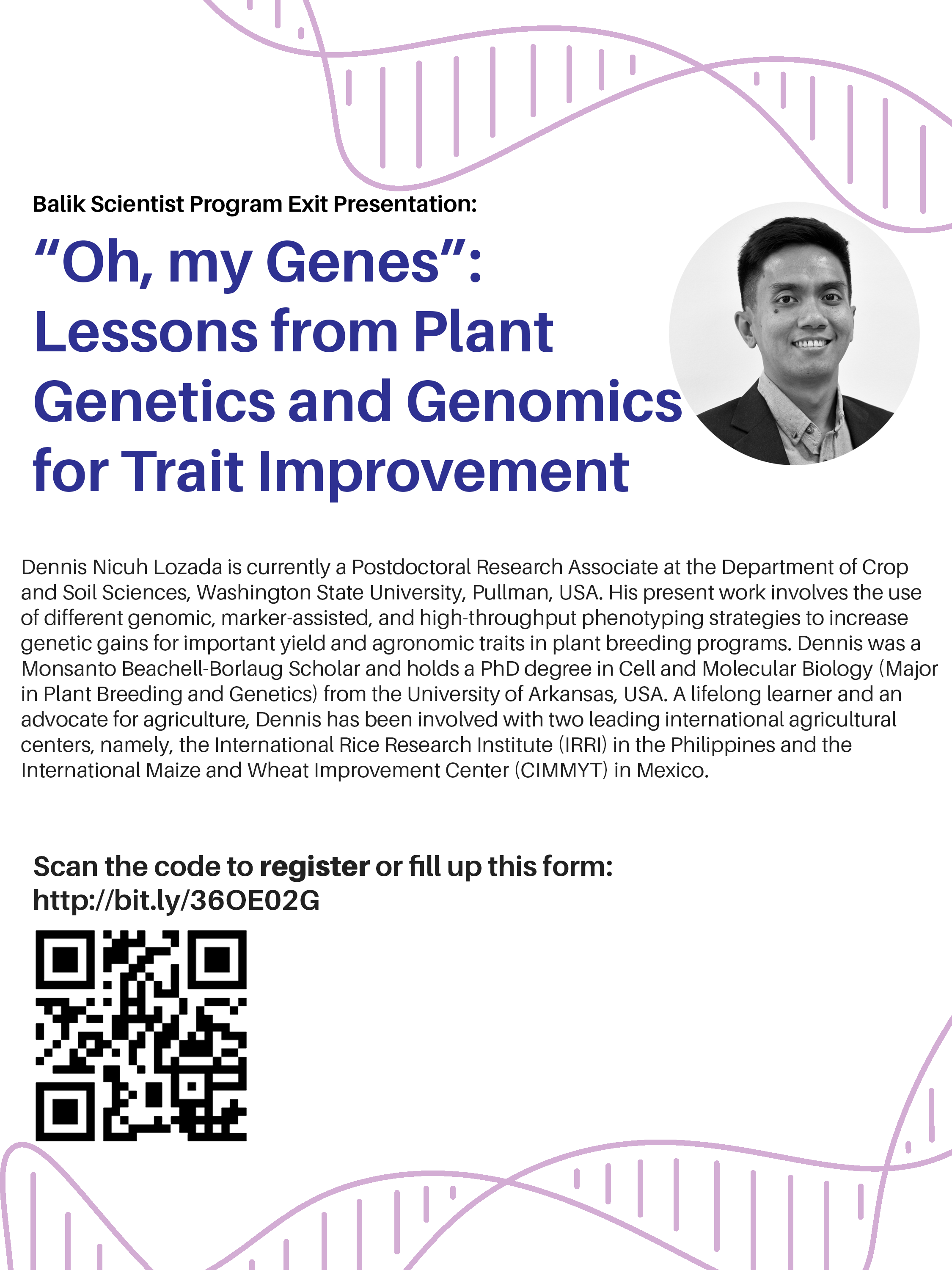
“Oh, my Genes”: Lessons from Plant Genetics and Genomics for Trait Improvement
In recent years, genetics and genomics has played an important role in facilitating the genetic improvement of plants. Different tools have been developed to examine the structure, function, and properties of genes controlling complex traits. The genetic diversity of germplasm found in existing gene banks through different breeding populations such as core collections, nested association mapping panels, mutants, recombinant inbred lines, and multiparent advance generation intercross populations in germplasm banks served as sources of desirable alleles for plant breeding.
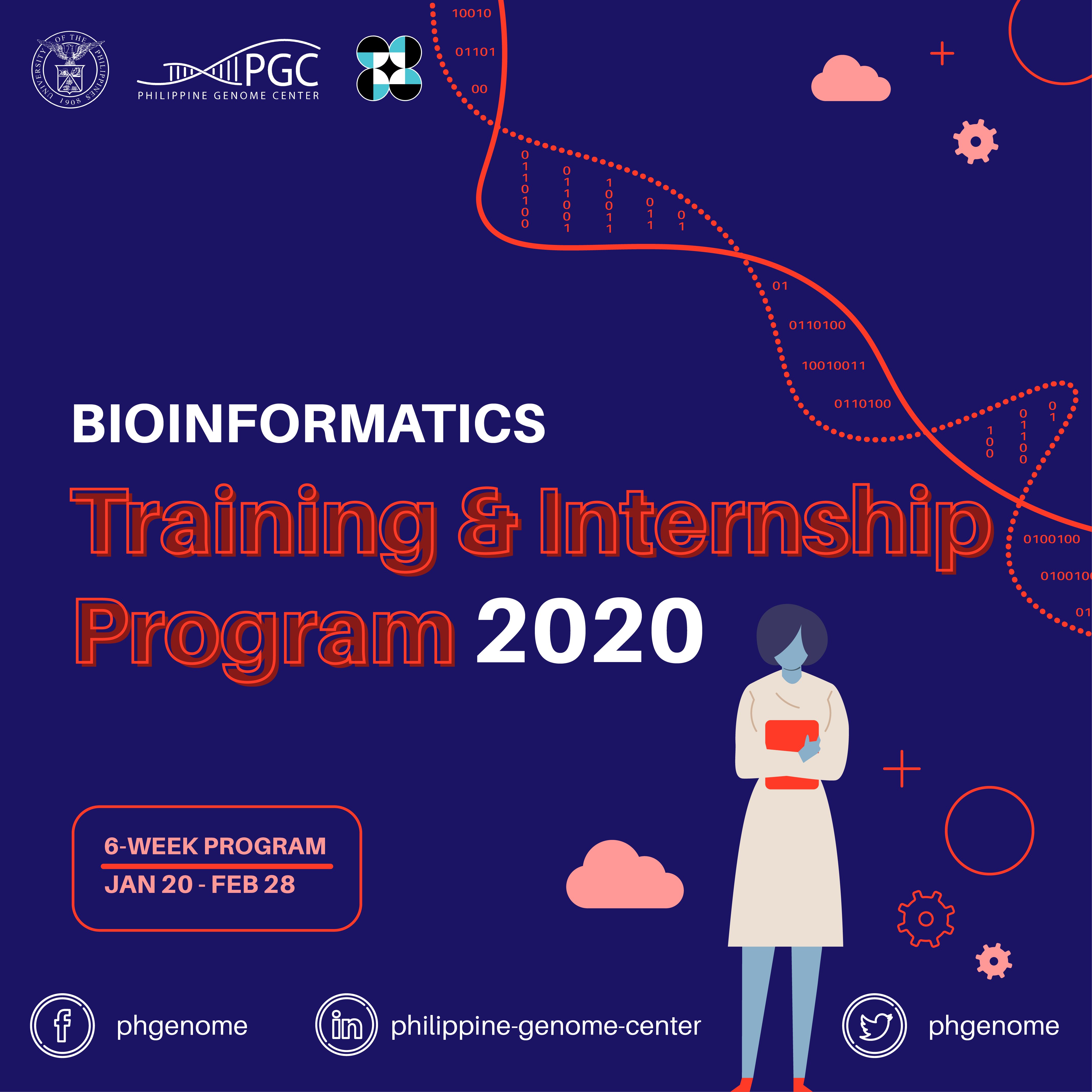
Call for applications: 2019-2020 Bioinformatics Training and Internship Program (Batch 04: Jan-Feb)
Student applicants must be undergraduate or graduate students in good academic standing, enrolled in a science or engineering course at an accredited college or university in the Philippines. Young professional applicants must have a BS degree in a science or engineering field, and be a researcher and/or faculty member employed at a research or higher education institution in the Philippines.

